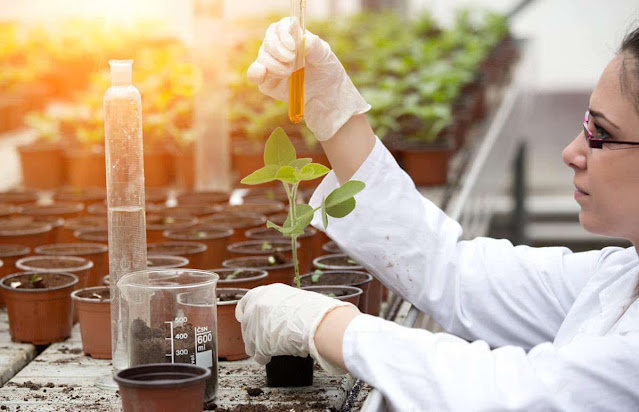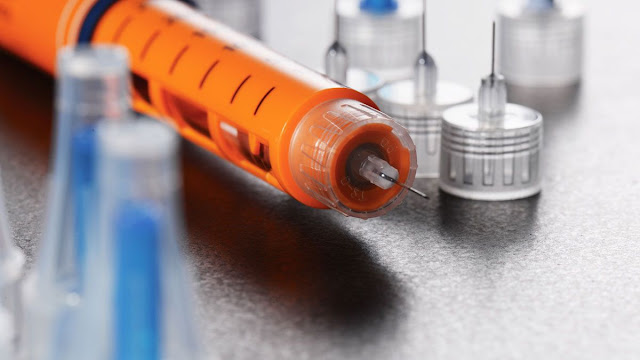Agricultural Testing Market: Ensuring Quality and Safety in Agriculture
 |
Agricultural Testing Market |
A) Market Overview;
The global Agricultural Testing Market is estimated to be valued at USD 5,427.4
million in 2021 and is expected to exhibit a CAGR of 5.67% over the forecast
period of 2022 to 2030, as highlighted in a new report published by Coherent
Market Insights. Agricultural testing involves analyzing various agricultural
products, such as soil, water, fertilizers, pesticides, and genetically
modified organisms (GMOs), to ensure their quality, safety, and compliance with
regulatory standards. These tests play a crucial role in optimizing
agricultural practices, enhancing productivity, and mitigating potential
environmental and health risks associated with agricultural activities.
B) Market Key Trends:
One key trend shaping the agricultural testing market is the increasing demand
for organic and sustainable farming practices. Consumers are becoming more
conscious about the origin and quality of their food and are increasingly
opting for organic and sustainably produced agricultural products. This has led
to a surge in the adoption of agricultural testing services to ensure the
absence of harmful substances, pesticides, and other contaminants in organic
food products. For example, the demand for testing services to verify the
absence of GMOs in organic crops has been on the rise.
C) Porter's Analysis:
- Threat of New Entrants: The agricultural testing market has moderate barriers
to entry, primarily due to the need for significant investments in lab
infrastructure, equipment, and skilled personnel. However, established players
with strong technical expertise and regulatory compliance have a competitive
advantage.
- Bargaining Power of Buyers: Buyers in the agricultural testing market include
farmers, food manufacturers, and regulatory agencies. They have moderate
bargaining power due to the availability of multiple testing service providers
and the importance of quality assurance in agricultural products.
- Bargaining Power of Suppliers: Suppliers in the agricultural testing market
include manufacturers of testing equipment, reagents, and consumables. They
have moderate bargaining power due to the presence of multiple suppliers and
the availability of substitutes.
- Threat of New Substitutes: The threat of substitutes in the agricultural
testing market is low. The accuracy and reliability of laboratory testing are
difficult to replicate through alternative methods, ensuring the continued
demand for testing services.
- Competitive Rivalry: The agricultural testing market is moderately
competitive, with the presence of both global and regional players. Intense
competition prevails due to factors such as technological advancements, service
quality, regulatory compliance, and pricing strategies.
D) Key Takeaways:
- The global Agricultural
Testing Market Size is expected to witness high growth, exhibiting a
CAGR of 5.67% over the forecast period. This growth can be attributed to
increasing consumer awareness regarding food safety, the growing demand for
organic and sustainably produced crops, and stringent government regulations.
- In terms of regional analysis, North America is expected to be the
fastest-growing and dominating region in the agricultural testing market. The
region's stringent food safety regulations, the presence of several key market
players, and the increasing adoption of advanced testing techniques are driving
market growth.
- Key players operating in the global Agricultural Testing Market include
Eurofins Scientific, Agilent Technologies Inc., SCS Global Services, Bureau
Veritas SA, ALS Limited, Element Materials Technology (EXOVA), TUV Nord Group,
Apal Agricultural Laboratory, Intertek Group PLC, EMD Millipore Corporation
(Millipore Sigma), BioMerieux SA, Aurea AgroSciences, 3M Company, Charm
Sciences Inc., Neogen Corporation, and Biolumix. These companies focus on research
and development, strategic collaborations, and mergers to gain a competitive
edge in the market.
In conclusion, the agricultural testing market is witnessing significant growth
due to the increasing focus on food safety, organic farming practices, and
regulatory compliance. With the support of advanced testing techniques and
evolving regulatory frameworks, agricultural testing helps ensure the quality,
safety, and sustainability of agricultural products, thereby fostering consumer
confidence and enabling the growth of the agriculture industry.



Comments
Post a Comment